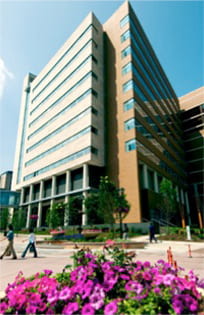Research training – Washington University School of Medicine

During the first year, with the advice of the program director, trainees begin planning for an individualized program in clinical or basic science investigation. The investigational program is conducted during the second and third year of fellowship under the guidance of a mentor in one of the laboratories or research groups at Washington University Medical Center. As the Pediatric Gastroenterology division has a long track record of training physician-scientists, trainees can expect excellent career mentoring from others who have gone through the process of publishing papers, applying for training grants and transitioning to scientific independence in their own labs. During the two years of research training, each fellow is expected to develop a project of his or her own and to present results at weekly laboratory meetings, at divisional and departmental seminars and at a national meeting. They are also supervised by a scholarly oversight committee during their research time. The goal is the development of a plan for continued research training, to compete for extramural funding and ultimately to establish an independent academic career. To best focus an individual’s investigative efforts during this two-year period, the fellow’s clinical responsibilities are limited to regularly scheduled divisional conferences, plus a well-defined continuity experience. The fellowship program at Washington University is unique in the unusually strong emphasis placed on protecting fellows’ time during their research years and even during the first year when searching for a project, in order that fellows may spend their second and third years truly immersed in research.
A multitude of basic and clinical research opportunities are available at the Medical Center. Research facilities for preclinical and clinical departments include the School of Medicine, the Clinical Sciences Research Building and the McDonnell Pediatric Research Building, all of which are adjacent to Children’s and Barnes-Jewish Hospitals. This proximity facilitates the interaction among scientists within clinical and preclinical departments, as well as with clinical researchers. Two of the pediatric GI faculty members hold joint appointments in basic science departments, which enhance their interactions with these departments and therein enhances the opportunities of our trainees to participate in the activities of these departments. We also have a close relationship with the adult GI program at Washington University. Our trainees have multiple opportunities to interact with faculty and trainees of a parallel, complementary and strong scholarly group of gastroenterologists.
The Washington University School of Medicine is a world-renowned research institution and has produced 17 Nobel Laureates. During the federal fiscal year of 2016-2017, the School of Medicine received $646 million in research grants and contracts. One of the highlights of Washington University’s world class research activity is the Genome Center. The Genome Center is one of only three NIH funded large-scale sequencing centers in the U.S. It began as a key player in the Human Genome Project, ultimately contributing 25% of the finished sequence. Today, the center is one of the world leaders in the Human Microbiome Project, devoted to sequencing the human bacterial genome and its interaction with humans in states of health and disease. Researchers from both pediatric and adult gastroenterology at Washington University are involved in collaborative projects with the Genome Center to study the human microbiome as it relates to diseases such as inflammatory bowel disease and necrotizing enterocolitis.